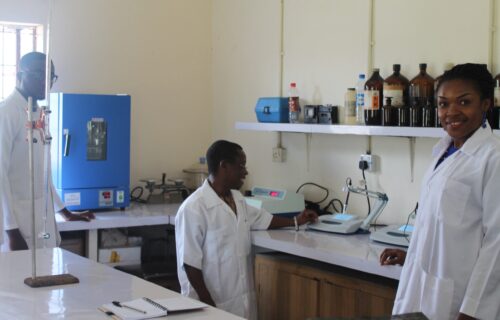Professionalizing Nigeria’s Water Sector: Transforming Service Delivery One State at a Time

“If you drink Zobo, we’re going to drink Zobo with you,” Dennis Mwanza, project director of USAID/Nigeria’s Effective Water and Sanitation Hygiene Services (E-WASH) project explains, referring to a popular Nigerian drink made with Hibiscus flowers. “It’s relationship building…if you are there [in the government water offices], you can see management styles, how teams work together, [and] adapt for the implementation of this program.” Such is USAID’s approach to implementing E-WASH: embedding technical experts and project team members in six Nigerian state government water board offices to work alongside decision-makers and affect change in the water sector.
Urban Migration and a Call to Action
An increase in domestic migration over the past few decades has resulted in nearly half of Nigeria’s 183 million citizens residing in urban centers. This has put a significant strain on water and sanitation services, not only in cities, but throughout the country. “The proportion of urban to rural population used to be 30 percent [urban], 70 percent [rural], now it’s 50–50. And the [urban water] system has not been upgraded or expanded,” says Jean Jolicoeur, USAID/Nigeria project manager for E-WASH. “Government has not put enough money into the system, so it can’t absorb the population growth, [and this has] put pressure on infrastructure.”
According to a 2017 World Bank WASH Poverty Diagnostic study, fewer than one in three Nigerians (in both urban and rural settings) have access to sanitation or potable water service on their premises. Urban areas are even more of a cause for concern, as residential access to piped water dropped from 32 percent in 1990 to 7 percent in 2015. “Sanitation is even worse,” Jolicoeur says. “[It is] completely neglected. There is no sewage system in the entire country, other than a section of Abuja; few treatment plants ; [waste is] dumped in rivers, in lagoons, or open sites; [there is a] complete lack of regulation or mandate.”
The World Bank diagnostic brought much of this reality to light, and in March 2018 the Government of Nigeria (GON) responded with a Water and Sanitation National Action Plan. It includes a five-year emergency response effort, as well as a longer term revitalization strategy for the water and sanitation sectors. The plan is part of a broader government strategy aimed at achieving the 2030 Sustainable Development Goals. Soon after the government released the plan, the president declared a national state of emergency in the WASH sector, indicating support from the highest levels of government.

